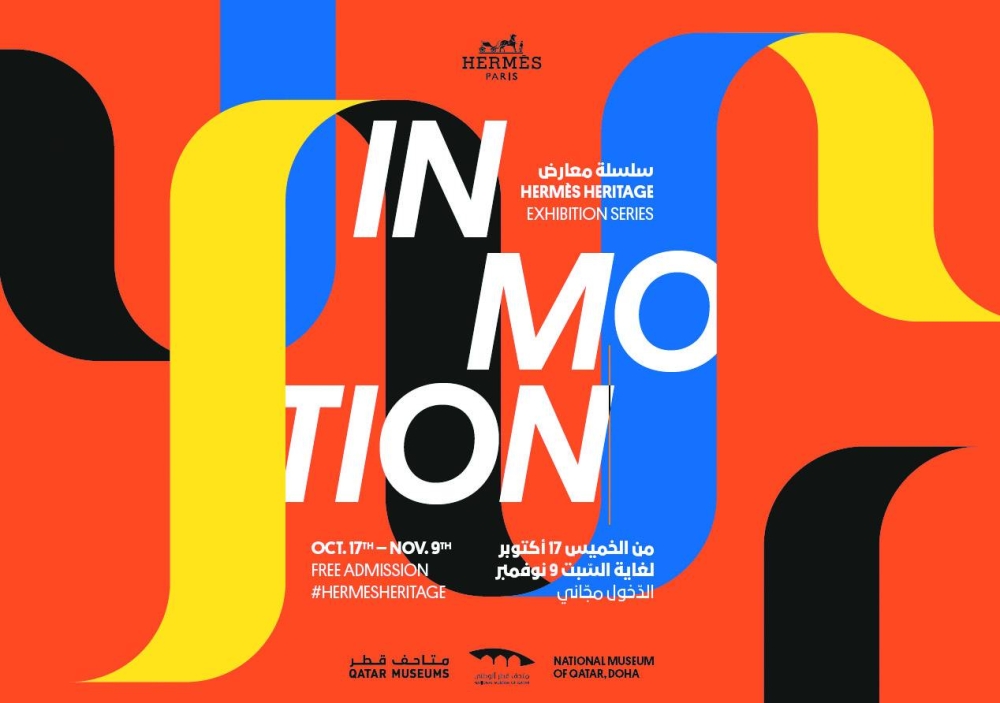Hermès Heritage In Motion will be hosted at the National Museum of Qatar (NMoQ) in Doha from October 16 to November 9, featuring iconic objects from Hermès' archives and highlighting its evolution from saddlery to modern-day accessories.
Building on the success of Once Upon a Bag in 2022 and Harnessing the Roots in 2023, both of which were held at the same venue, this exhibition serves as the third and final chapter in the Hermès Heritage exhibition series.
The Hermès Heritage cycle of touring exhibitions explores the history of the house founded in 1837 by Thierry Hermès with its iconic themes, colours and objects, following in the footsteps of the generations of creators and craftsmen, from its origins as a harness-maker and saddler to the present day. The chapter “In Motion”, showcases objects that carry within them the desire to take off, to go elsewhere and roam.
Hermès came into being at a historic time when modern life was gathering pace, where men and women wanted nothing more than to move with ease in a bustling and increasingly mobile world. Whether at a trot or a gallop, on foot, on horseback, or by car, bicycle, skateboard, or aircraft, and regardless of the pace or means of transport adopted by their users, Hermès creations advance in the same light, elegant and ingenious style.
The exhibition is testament to this, presenting objects from the Émile Hermès collection, the archives, the Hermès Conservatoire of Creations and contemporary pieces. Within this vast corpus, of particular interest is the very first Hermès scarf, its design concentric circles of horse-drawn carriages inspired by the playing board of an eponymous game (the Jeu des omnibus et dames blanches), or the pair of Postilion’s riding boots whose size and robustness are dreamily reminiscent of the marvellous seven-league boots, while the Flâneur d’Hermès bicycle displays its fluid lines with grace.
The Bolide picnic bag is itself inspired by the Sac pour l’Auto: created by the house in the 1920s, it illustrates how Hermès objects also travel through the ages. The exhibition gives pride of place to ingenious mechanisms: the Pippa writing desk is useful when opened, and once closed, it is put away and forgotten about; the cane picnic basket conceals, well hidden in its upper part, a battery of cutlery, while the Inversables, two columns of glasses mounted on mobile rings, can be taken on board a yacht or an ocean liner without ever fearing the swell of the waves.
This touring exhibition thus charts its exciting course in five stages under the direction of Bruno Gaudichon, curator of the “La Piscine” Museum of Art and Industry in Roubaix, and exhibition designer Laurence Fontaine.

